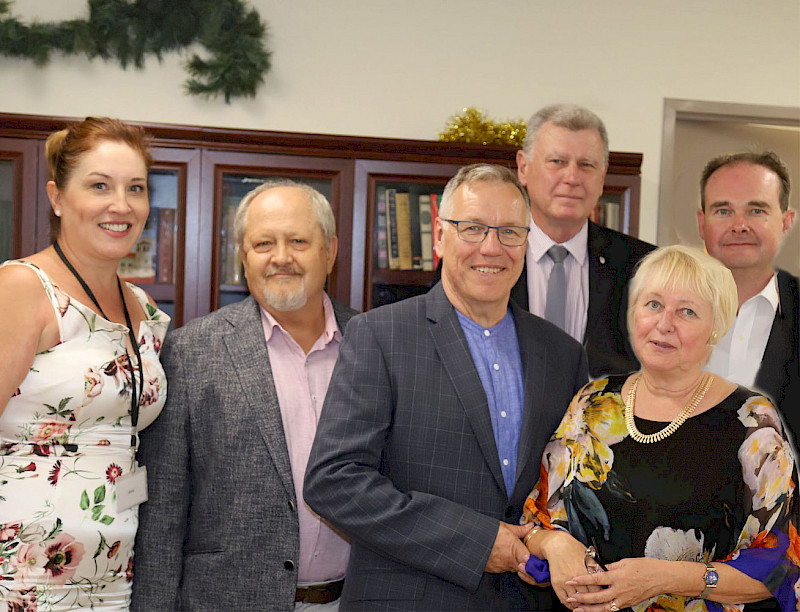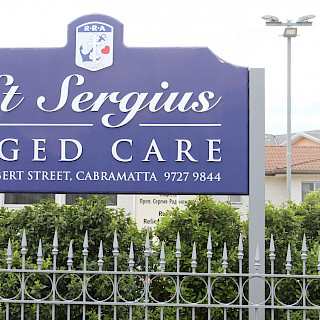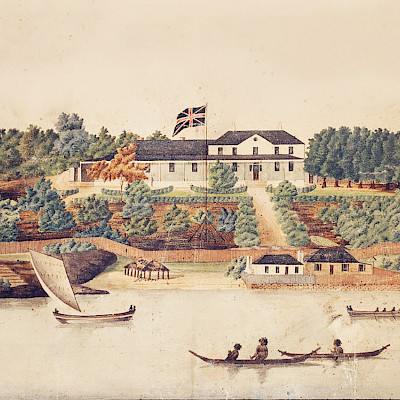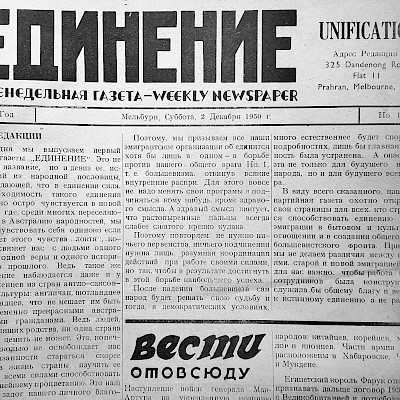
On the eve of New Year and Christmas, we asked Andrew Pesсe, Chairman of the Board of the The Russian Relief Association of St Sergius of Radonezh (known as St Sergius Aged Care), to tell us about the main results of 2024 and plans for next year of one of the largest organizations of our community in Australia. This not-for-profit public organization has been providing services to older people for more than 50 years.
— 2024 was the year that the government’s aged care reforms began to come into force. These changes consist of two parts. One is a pay rise for aged care staff. This is a good decision at the right time. Compared to nurses and nursing assistants in the hospital sector, aged care staff are paid significantly less. This makes it difficult to attract good staff and retain them, as they can earn more money in other sectors. The government has started to address this issue and increased salaries for people. And, importantly, provided additional funding. This means that aged care facilities can afford these pay rises. I hope this will allow us to continue to find great people to care for our residents.
The second thing is that we are following the trend in the industry to provision of home care. We didn’t have a home care service previously, we only started providing that five years ago. It’s clear that this trend is only going to increase. When we surveyed the Russian community in Sydney a few years ago, we found that most older people want support to stay at home for as long as possible. This year, we were able to expand the home care service. To do this, restructured the service and recruited the people with specific skills to ensure that we were maintaining safety and quality of care whilst we were expanding. It’s a big challenge, but it needs to be done. At St Sergius, we provide a 24-hour service for our residents, whereas in home care we may provide two or three hours a day. So, we have to put a process in place to make sure that we are responding to each client’s needs and provide services at a high standard. It’s a big challenge, and it’s something that we are continuing to develop.
In regards of other things. Long awaited dementia unit construction is very close to starting. We had a lot of delays getting development approval from the council, and there were further delays because the construction industry has been affected by workforce shortages. We have prepared a contract and hope to select a builder in a month or so. And building should commence early next year. We expect that construction will take from 12 to 18 month.
The other project is: – we decided to build a new kitchen. The current kitchen is adequate, but coming to the end of its effective life. It’s time to build a completely new kitchen in a new location to enable efficient food preparation for the existing facility and the future dementia unit, which will be in a separate building.
These are two major projects for coming year.
— Do you have sufficient number of staff?
— We are fortunate to have an adequate and highly skilled staff, but as we plan to expand, we are still looking to increase our workforce. We are required by government regulations to have a certain number of staff to care for residents. Each resident needs 215 minutes of care per day, or three and a half hours. We have the required number of staff at this stage, but we would like to have more in case of unplanned leave or other unforeseen circumstances.
— RRA was founded by people from our Russian community to care for Russians living on Sydney
— We admit all Russian people who request admission for aged care. However, we still have more capacity and therefore can consider applications from people of other nationalities. Our strong financial position is based on our high occupancy, and this enables us to be confident of our future ability to care for elderly Russians.
— How many people you provide services to?
— We have 182 beds in our aged care home, all of which are currently full. We also provide home care for 71 people. Another benefit of home care is that we go out to different parts of the city, including the Eastern suburbs and have even commenced services in the Blue Mountains, Gosford and Newcastle where families are hesitant to bring their elderly family members to our aged care home in Cabramatta because it is too far for them to visit. By providing home care, we can identify areas where these services are needed. If we know that there are enough people in a certain area who require aged care services, then that gives us confidence that if we build another aged care home there for the benefit of the Russian community, our services will be in demand. Obviously, buying an existing facility and building a new one is a significant capital outlay. To do this, we need to be sure that it is the right part of GreaterSydney.
— Is this in the longer plans?
— We were always open to opportunities to open another residential facility in another part of Sydney. At the moment we would like to focus on and complete our two current projects: The dementia unit and the new kitchen. When we extend our home care services we will have information that will help guide our consideration for a new facility.
— Traditionally in the end of year RRA have an annual meeting and elections of part of the Board.
— We had our annual meeting on November 17th. All of the directors who were up for election after three years were re-elected. Given the current government standards for Aged Care, we need to have people with specific skills on our board. We are fortunate to have people with a variety of skills so that the board has the ability to address all of the types of issues that a board should be responsible for. For example, we have two directors with direct clinical experience, we have a director with legal experience, one with accounting experience, one with actuarial experience, and we have directors who are well represented in our community. (The list of directors on the board includes Dr Andrew Pesce, Nicholas Pitchuev, Nicholas Maksymow, Dr Irina Rotenko-Harvey, Igor Kazagrandi, Michael Apollonov, Tania Prolov, Dr Don Zakroczymski, Michael Vladimirov, protodeacon Bill Konstantinidis).
— How often the Board comes together for meetings.
— Meetings for all Board members are monthly, also there are meetings of specific Committees of the Board, for example finance Committee, Quality and Safety Committee, Building Committee, IT Committee and others.
— The conditions for providing services to people in need are quite complex and change over time. Where can they get the information required?
— We receive requests from our community for information about aged care arrangements, what options for aged care are available to them and what are the financial implications? We publish information on the website stsergius.org.au We will provide more information for people who want to receive certain services and need to do some planning. We will also place this information in the Unification newspaper. People must always, of course, also get independent financial advice.
The day-to-day work at the Home for the Aged is led by the Chief Executive Officer Helen Workman, the Director of Finance Tatiana Fedoseeva, the Director of Care Natalya Zaytseva.
— Was the last year successful for RRA?
— We have had a very successful year, we achieved the largest profit for several years and we have significant cash reserves to make sure we cover all liabilities. That’s happens because St Sergius has been well managed for many years. A lot of other aged care facilities are very marginal financially. We are confident we can continue provide the best services in future.
— The festive season is upon us all.
— We are planning a Christmas function in January, which should be the first large community event at St. Sergius since the COVID outbreaks of 2020.
I would like to express my sincere gratitude to all of our staff, of whom we are very proud and who provide excellent care to our residents. On behalf of the Board of the RRA named after Sergius of Radonezh, we also wish our residents all the best for the Christmas period and New Year.
The Chairman of the Board Dr Andrew PESCE spoke with
Vladimir KOUZMIN





















